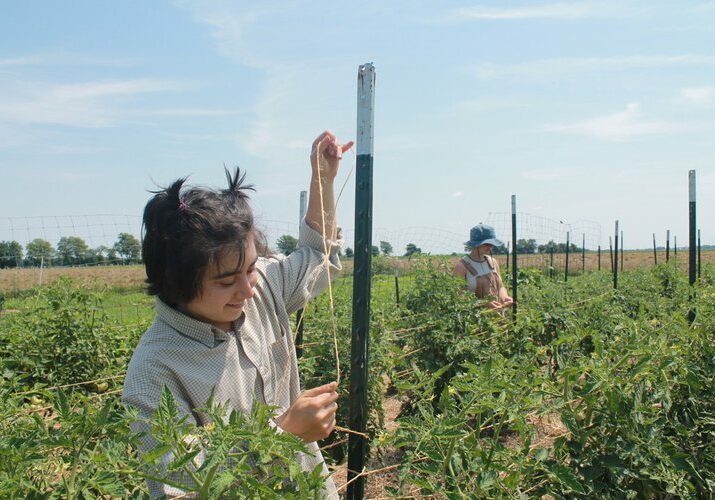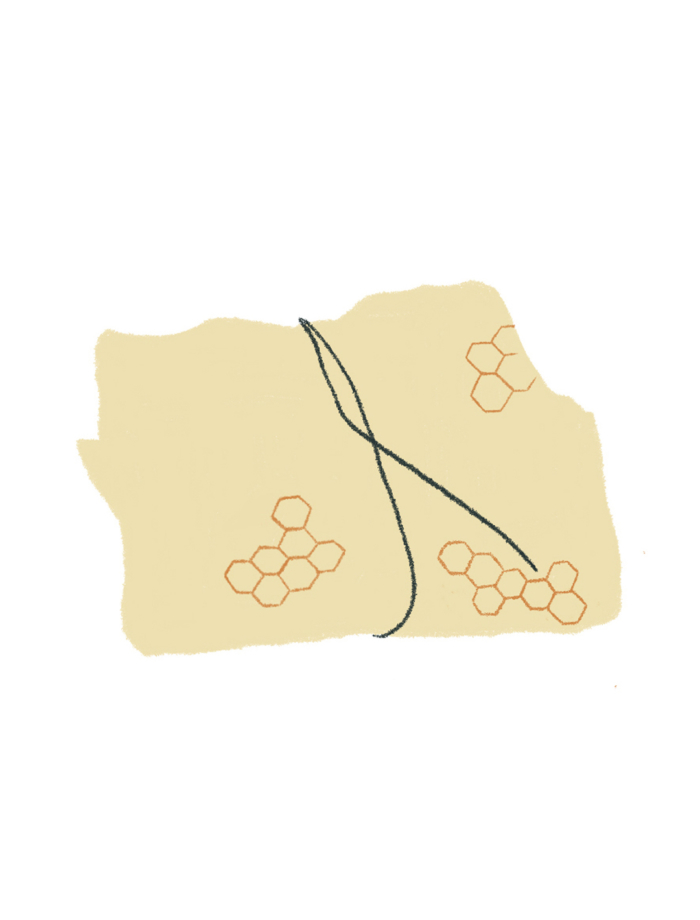Last week we celebrated Tu Bishvat — the birthday of the trees in Jewish tradition, which reminds us of our entwined and interdependent existence with plants. The joyous and food-centric rituals of Tu Bishvat make it one of my personal favorite days on the Hebrew calendar, but Jewish agrarian customs offer compelling instruction on our relationship with the land we inhabit all year long.
In 2020, my sister Gavi moved to the farm where our dad grew up in central Illinois to found Zumwalt Acres, a regenerative agriculture community rooted in Jewish values. Over the past few years of planting, harvesting, and distributing food, she’s learned a lot about what it means to be a responsible land steward and the relevance of these ancient practices for environmentalists today. I asked her if she could share some of her wisdom with the Closed Loop community, and she took a break from work on her earth science and mechanical engineering undergraduate thesis to oblige.
How has working on the farm impacted your understanding of the Jewish customs you grew up with?
Practicing Shabbat every week is so central to Jewish tradition, and when you’re working in the field all week, the need for Shabbat feels even more salient because you’re physically exhausted. Something I found interesting about observing Shabbat on the farm is that you have to make a distinction between what constitutes farm work versus what is farm care. While we’re asked to abstain from work, we still need to be responsible caretakers of the land. Feeding your animals would be an example of farm care and is permitted on Shabbat, but you wouldn’t bale hay. You also feel more connected to Rosh Chodesh (the celebration of the new moon) when you’re outside and see the moon changing throughout the course of the month. You experience the seasons changing and you notice the ways that the holidays are connected to the season that you’re in.
There are also customs very specific to agriculture that you’ve gotten to engage with directly on the farm. Can you talk about what those are?
Like Shabbat and Rosh Chodesh, all of these traditions are based on cycles of time. We have Shmita, which is the commandment to let the land rest every seven years, similar to how we rest every seventh day for Shabbat. That influences how we tend to the land every year because you need to be preparing for that non-producing year. We’re also asked to prepare to pay any debts we owe to others and release any debts that are owed to us in a Shmita year. That feels like a very salient practice to me right now with regard to conversations around land redistribution and who has access to those resources.
While we’re asked to abstain from work, we still need to be responsible caretakers of the land.
Zooming out further, we have Yovel, which occurs on the 50th year after seven cycles of Shmita. In a Yovel year there is a massive redistribution of all resources and land. Everyone is supposed to return to their homeland, which in effect means no one can own a piece of land in perpetuity and resources can’t end up concentrated within one small group of people. In today’s world there is no consensus on where we are in the Yovel cycle so it’s not widely practiced in a meaningful way, but I think that means we have a really exciting opportunity where we could decide today we are in year one and say ‘let’s see what we can accomplish in 49 years.’
Last year was Shmita, so now we are in a Hakhel year, which is a gathering during the harvest festival of Sukkot, in which everyone in the community comes together — Jews and non-Jews, children and elders, etc. — with the purpose of discussing the wars we’ve failed as a nation and how we can do better in the future. I think it is so compelling to have this ritual to amend our collective wrongdoings every seven years so that we can enter the new cycle better.
What’s on your Shabbat table this week?
I’m making vegan sourdough challah and fava bean soup!
How are you practicing rest at the moment?
Going on long and slow walks and talking on the phone with people who make me feel loved.
Thanks, Gavi! You are a shining star.






